Filter by

Between Peace and Conflict in the East and the West
- Edition
- -
- ISBN/ISSN
- 9783030774899
- Collation
- -
- Series Title
- -
- Call Number
- -
- Edition
- -
- ISBN/ISSN
- 9783030774899
- Collation
- -
- Series Title
- -
- Call Number
- -
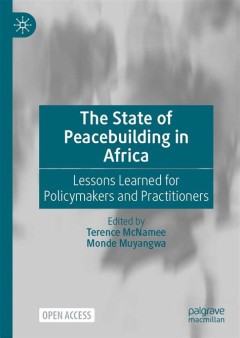
The State of Peacebuilding in Africa = Lessons Learned for Policymakers and P…
This open access book on the state of peacebuilding in Africa brings together the work of distinguished scholars, practitioners, and decision makers to reflect on key experiences and lessons learned in peacebuilding in Africa over the past half century. The core themes addressed by the contributors include conflict prevention, mediation, and management; post-conflict reconstruction, justice and…
- Edition
- 1
- ISBN/ISSN
- 9783030466367
- Collation
- XIX, 431 hlm; ill., lamp.,
- Series Title
- -
- Call Number
- -
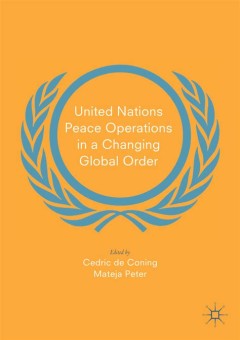
United Nations Peace Operations in a Changing Global Order
This open access book explores how UN peace operations are adapting to four transformational trends in the changing global order: (1) the rebalancing of relations between states of the global North and the global South; (2) the rise of regional organisations as providers of peace; (3) the rise of violent extremism and fundamentalist non-state actors; and (4) increasing demands from non-state ac…
- Edition
- -
- ISBN/ISSN
- 9783319991061
- Collation
- XXV, 334hlm; ill., lamp.,
- Series Title
- -
- Call Number
- -
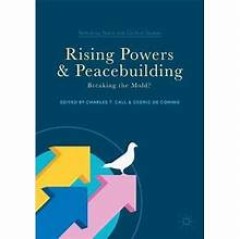
Rising Powers and Peacebuilding
This book is open access under a CC BY 4.0 license. This edited volume examines the policies and practices of rising powers on peacebuilding. It analyzes how and why their approaches differ from those of traditional donors and multilateral institutions. The policies of the rising powers towards peacebuilding may significantly influence how the UN and others undertake peacebuilding in the futur…
- Edition
- 1
- ISBN/ISSN
- 978-3-319-60621-7
- Collation
- -
- Series Title
- Rethinking Peace and Conflict Studies
- Call Number
- XV, 276
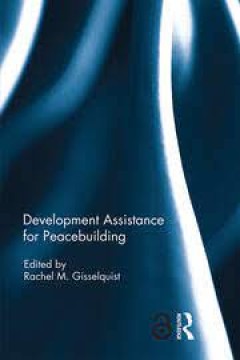
Development Assistance for Peacebuilding
Development assistance to fragile states and conflict-affected areas can be a core component of peacebuilding, providing support for the restoration of government functions, delivery of basic services, the rule of law, and economic revitalization. What has worked, why it has worked, and what is scalable and transferable are key questions for both development practice and research into how peace…
- Edition
- -
- ISBN/ISSN
- 9781138080461
- Collation
- -
- Series Title
- -
- Call Number
- -

Adaptive Mediation and Conflict Resolution
This open access book introduces adaptive mediation as an alternative approach that enables mediators to go beyond liberal peace mediation, or other determined-design models of mediation, in the context of contemporary conflict resolution and peace-making initiatives. Adaptive mediation is grounded in complexity theory, and is specifically designed to cope with highly dynamic conflict situation…
- Edition
- -
- ISBN/ISSN
- 978-3-030-92577-2
- Collation
- -
- Series Title
- -
- Call Number
- -
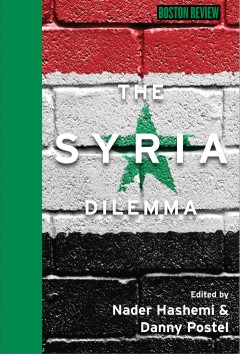
The Syria Dilemma
"The United States is on the brink of intervention in Syria, but the effect of any eventual American action is impossible to predict. The Syrian conflict has killed more than 100,000 people and displaced millions, yet most observers warn that the worst is still to come. And the international community cannot agree how respond to this humanitarian catastrophe. World leaders have repeatedly resol…
- Edition
- -
- ISBN/ISSN
- 9780262317313
- Collation
- 1 online resource (285 pages).
- Series Title
- -
- Call Number
- -

War and Reconciliation: Reason and Emotion in Conflict Resolution
A study of the role of reconciliation in intrastate and international conflict resolution and an argument for the value of integrating emotion in our conceptions of human rationality and problem-solving.OCLC-licensed vendor bibliographic record.
- Edition
- -
- ISBN/ISSN
- 9780262278522
- Collation
- 1 online resource (x, 235 pages) :illustrations
- Series Title
- -
- Call Number
- -
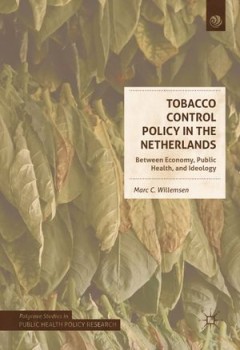
Tobacco Control Policy in the Netherlands : Between Economy, Public Health, a…
Governments have known since the 1960s that smoking results in irreversible health damage. This open access book examines why governments have done so little to combat this when they have been aware of the problem and its solutions for decades. What are the strategies and decisions that make a difference, given that policy environments are often not conducive to change? Taking the Netherlands a…
- Edition
- -
- ISBN/ISSN
- 9783319433486
- Collation
- XXI, 373 halaman
- Series Title
- Palgrave Studies in Public Health Policy Research
- Call Number
- 362 WIL t
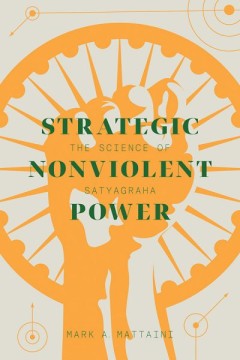
Strategic Nonviolent Power The Science of Satyagraha
History indicates that there are powerful routes to liberation from oppression that do not involve violence. Mohandas Gandhi called for a science of nonviolent action, one based on satyagraha, or the “insistence on truth.” As Gandhi understood, nonviolent resistance is not passive, nor is it weak; rather, such action is an exercise of power. Despite the success of Gandhi’s “Quit India�…
- Edition
- -
- ISBN/ISSN
- 9781927356418.01
- Collation
- -
- Series Title
- -
- Call Number
- 328 pages
 Computer Science, Information & General Works
Computer Science, Information & General Works  Philosophy & Psychology
Philosophy & Psychology  Religion
Religion  Social Sciences
Social Sciences  Language
Language  Pure Science
Pure Science  Applied Sciences
Applied Sciences  Art & Recreation
Art & Recreation  Literature
Literature  History & Geography
History & Geography